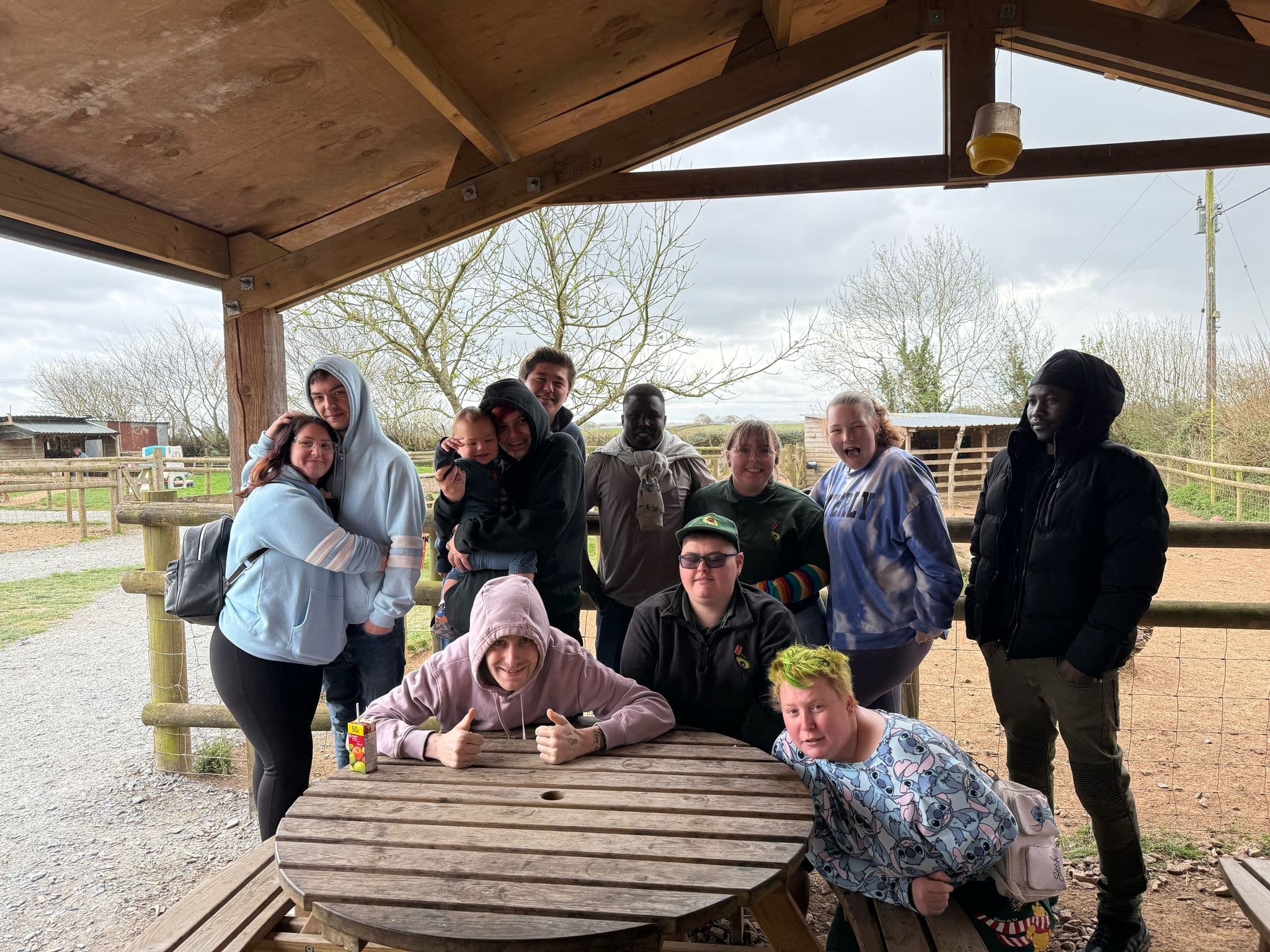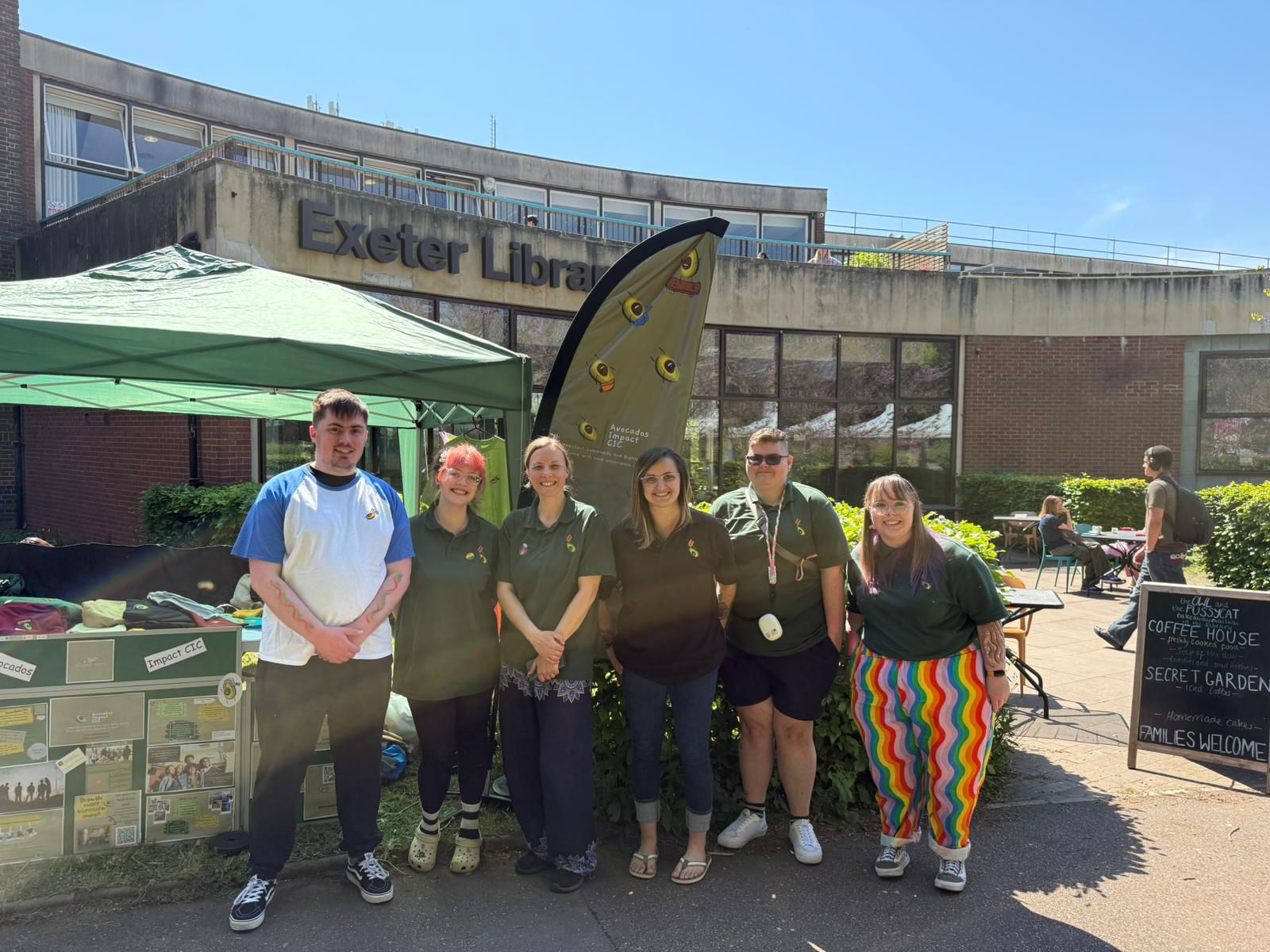Avocados Impact was founded in 2020 by Rachael, an Independent Social Worker, and Katie, who is care-experienced. It is an independent rights advice service and community, which is working to make life fairer, more connected, and more empowering for care-experienced people.
“The change we want to see is that young care-experienced people and adults know their rights and entitlements, and have the confidence and voice that are often lost in bureaucratic systems,” says Katie. “We also want to create a community of lifelong connections, because I don’t believe people should do life on their own. Alongside that, we want to challenge systemic inequalities that make it harder for care-experienced people to thrive.”
 That commitment to community runs through everything they do, from supportive legal advocacy to casual karaoke nights. “Our work is very relationship-based; we believe in connecting people and building trust. That relational approach supports our community work because it all links together,” says Rachael.
That commitment to community runs through everything they do, from supportive legal advocacy to casual karaoke nights. “Our work is very relationship-based; we believe in connecting people and building trust. That relational approach supports our community work because it all links together,” says Rachael.
Avocado’s work falls into three pillars: Advocacy and Legal Support, Community and Belonging, and Convening and Influencing.
The first pillar, Advocacy and Legal Support, is delivered through their Rights Advice Service, run in partnership with university law clinics and law firms. It helps care-experienced people to navigate systems within care settings, from benefits and housing to rights. “We do this by advocating for and empowering young people,” says Katie, “helping them challenge, stand up, speak out, or support others when it comes to their rights and entitlements.” Alongside this, Avocados provides crisis grants and essential equipment, such as educational laptops, helping people meet immediate needs while building long-term independence.
The second pillar, Community and Belonging, focuses on connection. At their Exeter Hub, they host fortnightly drop-ins, monthly human rights sessions, and creative activities designed by the community itself. They also collaborate with local participation teams to run trips and events across Devon. Katie says these gatherings are intentionally low-pressure: “You’re welcome to join in or just come along to hang out and have a chat.”
The final pillar, Convening and Influencing, brings together care-experienced people, carers, and professionals to share learning and challenge injustice. Through training and consultancy, Avocados delivers sessions written and led by care-experienced facilitators, helping professionals build awareness and confidence in their practice. “We partner with legal professionals, universities, local authorities, and other organisations to share knowledge, challenge what isn’t right, and promote good practice.” Rachael reflects.
At Avocados, they’ve built an internal model that reflects equality between lived and professional expertise, which they see as a real strength. “Our organisation is made up of people with lived experience of the care system, alongside those with professional experience in related areas like social work and law,” says Katie. “That mix puts us in a unique position.”
Within this model, Rachel says they work to ensure that the care-experienced community they serve are front and centre. “Our young people have real ownership of Avocados. It’s their organisation as much as it’s ours. We merge our lived-experience board and professional board so they work together. For example, during strategy days, both groups meet because we don’t want professionals to be seen as ‘above’ anyone else.”
When Avocados joined the Pathways Fund, the team was working from a tiny shared office in Paignton — far from many of the young people they supported. “Securing the Pathways Fund meant we could move into our own space in Exeter — much more central and accessible,” says Rachel. “That made a huge difference. More young people could reach us, and we could host meetings with professionals and partners in a proper space of our own.”
“It also gave us stability,” Katie reflects. “Having core funding meant we could keep going and build consistency. It helped cover staff costs and allowed us to focus on developing our work across Devon.”
Initially, they hoped to employ care-experienced young people, but soon realised they needed stronger foundations first. “We needed to secure our systems and support structures so that we could offer meaningful, sustainable roles later.” The Pathways Fund gave them the room they needed to build those systems and plan long-term.

“The well-being grant was brilliant, says Katie. “It gave us time to look after ourselves and the team. The group days and sessions with consultants have been incredibly valuable. We always came away with new ideas and practical insights.”
Blagrave’s funding offered more than financial support; it was a sign that someone believed in their work. “Blagrave was actually the first funder to believe in us. We were brand new — no one else would touch us at that stage — and they took a chance. That meant everything. We didn’t even have to complete huge applications; it was based on trust and understanding. That kind of relationship-based funding gave us the confidence and credibility to apply elsewhere later,” says Katie.
That trust paid off. “One of our biggest achievements is that we’ve managed to have a genuine seat at the table — to be heard and involved strategically in decisions that affect our community”, says Kaite. “We’ve started being invited to commissioning meetings, task and finish groups, and decision-making tables alongside senior leaders and policymakers. It’s both a huge privilege and responsibility. Being trusted in those spaces means we can start to challenge power imbalances and influence systems from within.”
Their move to a larger hub in Exeter was another turning point, according to Rachel. “It’s made us far more accessible across the county and removed a huge barrier we had when we were based in Paignton. The new space has allowed us to host events, meetings, and gatherings in a way we couldn’t before.”
And their financial growth has followed, says Katie, “When we started the Pathways Fund, we were receiving around £90,000 a year through small grants. Then we secured support from Paul Hamlyn and other smaller funds. Last year, for the first time, our annual income exceeded £100,000, which meant we could apply for larger-scale funding. If you add everything we’ve secured since the start, it’s probably close to £1 million in total funding, which feels amazing for an organisation that’s still young.”
But like many small organisations, Rachel acknowledges that Avocados is stretched. “Our biggest barrier is being time-poor. We try to do too much with too few people — classic capacity issues. The other ongoing challenge is mundane business administration — the day-to-day organisational tasks that get in the way of the work we actually want to do. But that’s part of growing, and we’re learning to manage it better.”
Even with those challenges, their outlook remains grounded and hopeful. “Growth wasn’t just about size; it was about stability. It took time to build networks, relationships, and credibility.” That patience has paid off, not just in funding but in influence, visibility, and impact.
Now, when care-experienced young people in Devon need advocacy, advice, or community, they know where to turn.